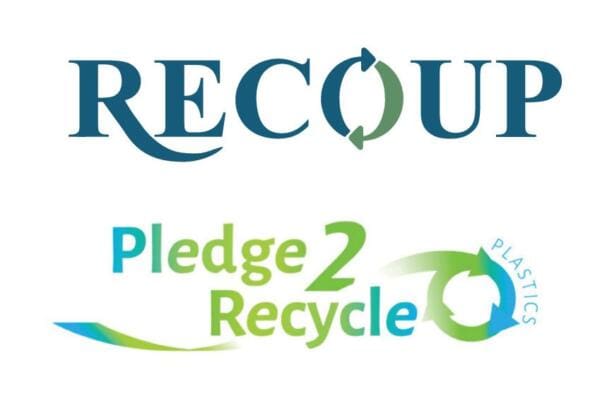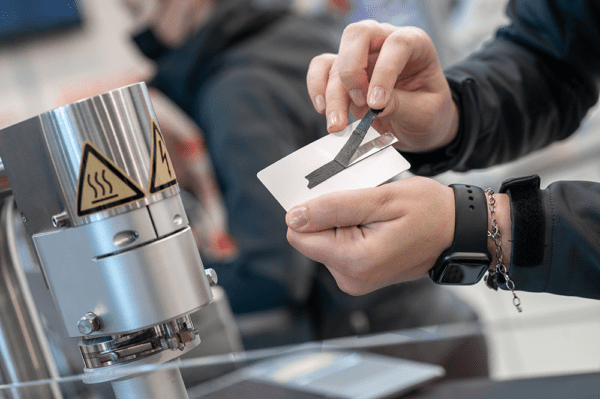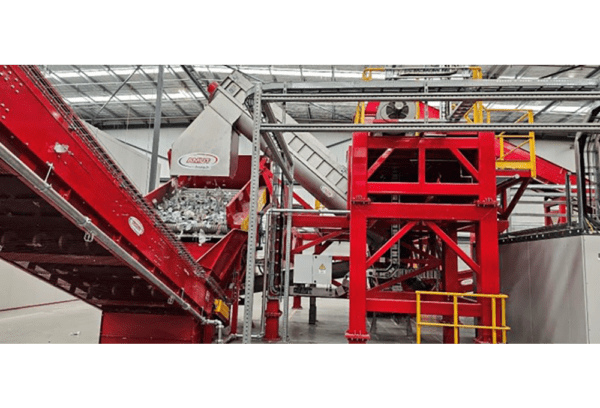
RECOUP: Green Dot Symbol Adds to Customer Confusion
Plastics Recycling Charity, RECOUP, (in association with Marks and Spencer and Plastics Europe) have undertaken an observational study to understand the barriers and behaviours of citizens when recycling plastic packaging.
RECOUP commissioned ‘Watch me Think’ to facilitate recordings of citizen behaviour to gain an understanding of the actual behaviour of consumers at home when recycling and their perceptions on recycling. The study identified that citizens remained confused despite their best intentions.
The Mobius Loop and Green Dot symbol (left) were both being viewed as recycling indicators. However, the Green Dot symbol merely indicates that a company has joined the Green Dot Scheme, and does not necessarily indicate that the product’s packaging is fully recyclable. However, the symbol does signify that the producer has made a financial contribution towards the recovery and recycling of packaging in Europe.
The study identified that in the case of plastic packaging where OPRL recycling instructions (right) were easily detected then consumers tended to follow these instructions and symbol confusion did not play a part in their recycling behaviour. The feedback from citizens indicated that recycling messages needed to be highly visible, unambiguous and ideally on the front of the pack.
Anne Hitch, Communications Manager, RECOUP, commented “This study identified barriers to behaviour change and attitude towards recycling. Consumer confusion is complex and subjective, but even when people are keen to recycle the labelling means that items may end up in landfill that could otherwise be recycled. RECOUP’s Pledge2Recycle Plastics work shows that there is a need to invest in education and communication.”
The study also highlighted;
- Salmonella and Kitchen Hygiene Concerns – Concerns over kitchen hygiene cross-contamination from washing resulting in consumers placing meat trays into general waste.
- Unsure what Constitutes a ‘Food Tray’ – Where local instructions indicate ‘Food Trays’, this can lead to confusion. Consumers are unsure whether ‘Food Trays’ refers to ready meal packaging or any trays that have contained cooked or uncooked fruit, and vegetables.
- Can’t be Bothered to Clean – Citizens were unwilling to undertake cleaning required and therefore place soiled items of plastic packaging that could be recycled into their general waste.
- Removing Sleeves – The need to segregate some items of packaging before recycling was viewed as a hassle, which leads to these products ending up in general waste.
- Insufficient Recycling Capacity – Even if the consumer knew that the items were recyclable, it could still end up in general waste due to the size.
Despite the issue of plastics recycling being high on the agenda, citizens still do not see this as their responsibility. All the respondents saw the responsibility for ensuring that plastic packaging which they purchase is recyclable to be either that of the brand owner putting the pack on the market or the Local Authority who provided the recycling service. Citizens are yet to understand how important the small changes they make in their recycling behaviour can have on recycling rates.
Adrian Whyle, Senior Resource Efficiency Manager, Plastics Europe, stated “This study provides a unique insight into householders recycling behaviour and clearly highlights that there is much confusion on what can or cannot be recycled. We encourage all stakeholders to work towards a harmonised waste collection system throughout the UK with clear labelling on what can or cannot be recycled in order eliminate confusion and to maximise the recovery of such valuable resources.”
Stuart Foster, CEO, RECOUP, further commented “We know that the general public is generally keen to recycle more plastics. We have seen how communication and clear consistent messaging is critical in driving up recycling rates. We are working closely with our members and across the industry to make recycling easy and economically viable. We all need to recognise how even making small changes, can have a big environmental impact.”
RECOUP will be utilising the learnings of this body of work in future Pledge2Recycle Plastics communication strategies and education to assist the citizens in making the right plastic recycling decisions. The full report can be downloaded here.
This topic will also be debated at the RECOUP Conference on 26th September 2019, visit www.recoup.org/conference-2019 for more details.






